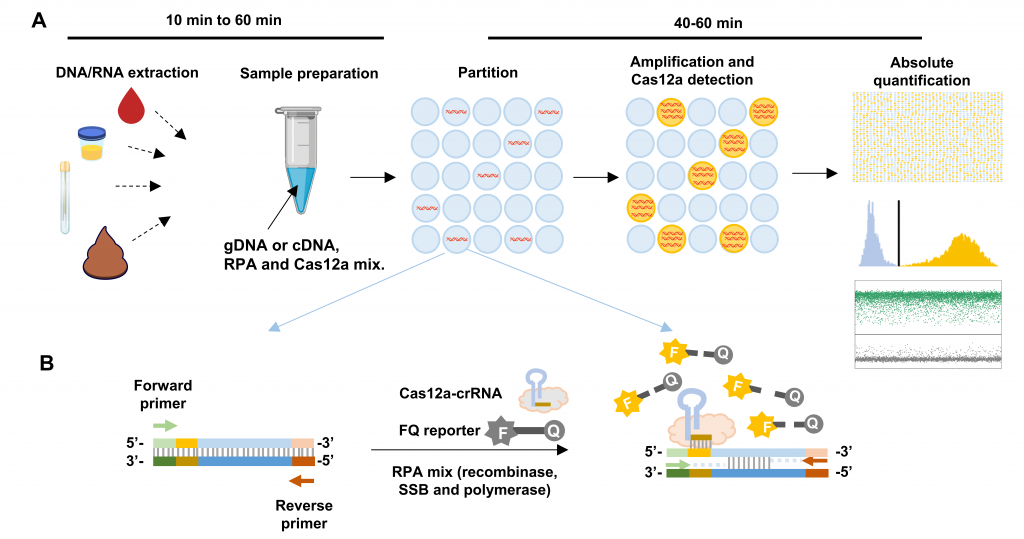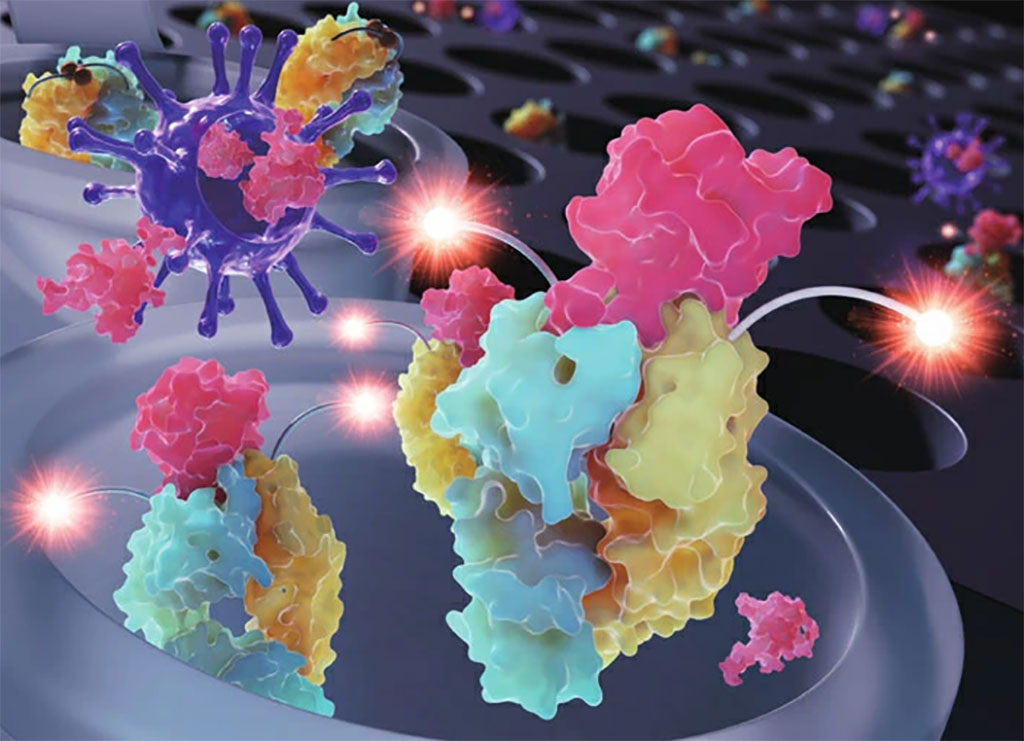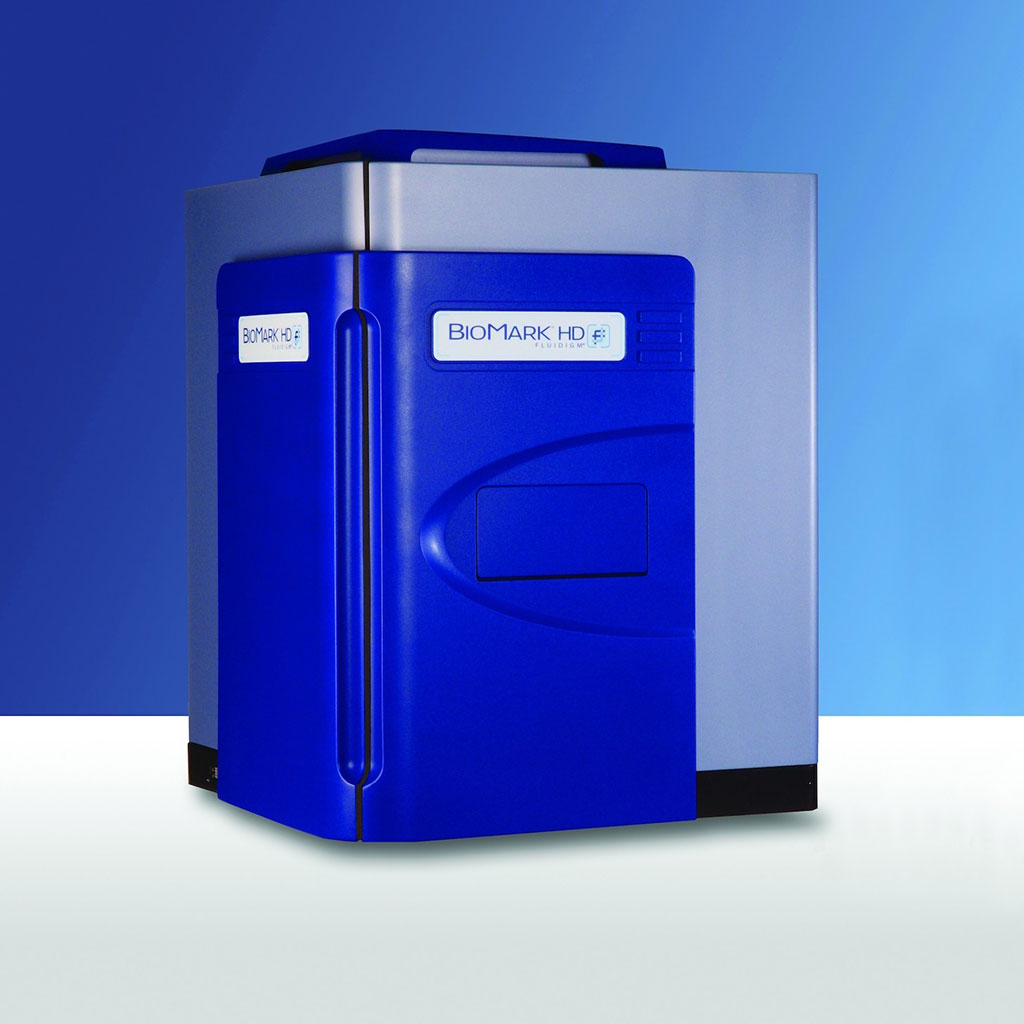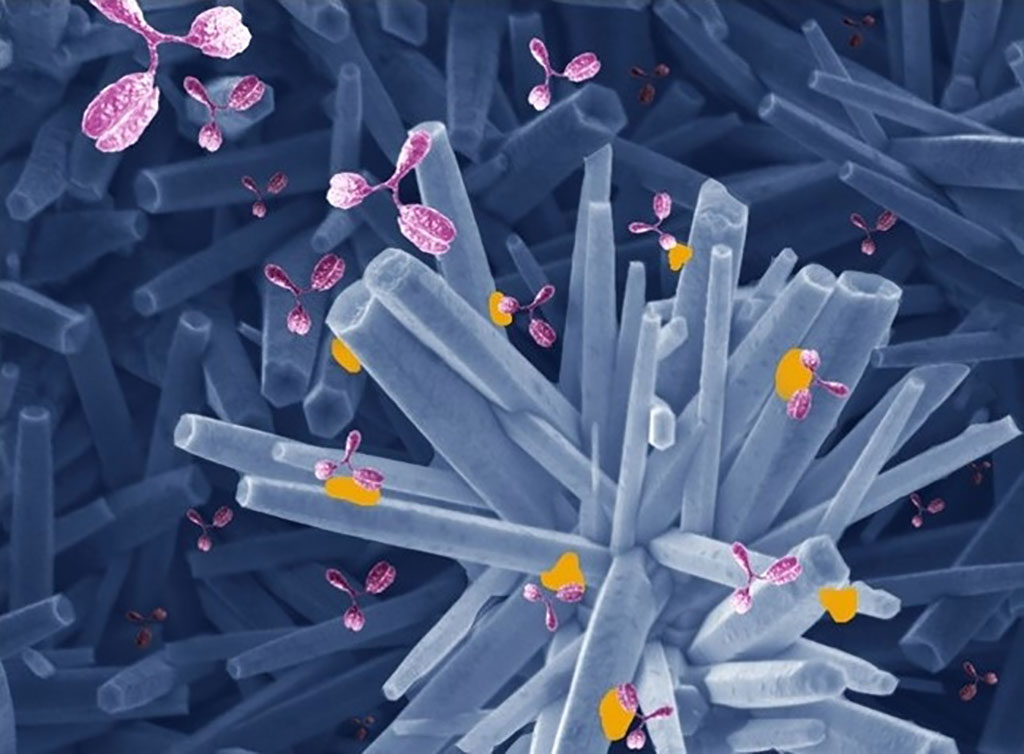New Method for Rapid, Accurate Detection of Viruses Could Speed Up COVID-19 Testing
By LabMedica International staff writers
Posted on 08 Jun 2021
Researchers have developed a method for rapid, accurate detection of viruses that is four times faster than conventional PCR methods, is highly specific, sensitive, and resistant to inhibitors and could speed up COVID-19 testing.Posted on 08 Jun 2021
The molecular rapid testing methodology, called RApid DIgital Crispr Approach (RADICA) has been developed by researchers from Critical Analytics for Manufacturing Personalized-Medicine (CAMP), an Interdisciplinary Research Group (IRG) at the Singapore-MIT Alliance for Research and Technology (SMART; Singapore). The new method for rapid and accurate detection of viral nucleic acids marks a breakthrough that can be easily adapted to detect different DNA/RNA targets in viruses like the coronavirus.

Image: Figure shows the schematic illustration of RADICA (Photo courtesy of Singapore-MIT Alliance for Research and Technology)
The molecular rapid testing methodology allows absolute quantification of viral nucleic acids in 40-60 minutes and is four times faster and significantly less expensive than conventional polymerase chain reaction (PCR) methods as it does not require costly equipment for precise temperature control and cycling. The RADICA method has been tested on SARS-CoV-2 synthetic DNA/RNA as well as the Epstein-Barr virus in cultured B cells and patient serum. The researchers say the method can be adapted to detect other kinds of viruses, and in other types of samples such as saliva and cell culture media. RADICA is also able to distinguish the virus from their close relatives.
The team used extracted DNA/RNA of the sample and divides a 15 µL reaction into thousands of independent partitions. In each partition, the DNA/RNA is amplified and identified by Cas12a protein, an enzyme that can turn the target signal into a fluorescent signal. This allows absolute quantification to be achieved by counting the number of partitions that have the target DNA/RNA and are lit up. The method is also faster, cheaper and more efficient than what is used today and its digital format makes it more tolerant to contamination or inhibitors that may be present in biological samples – often the case with cell therapy products.
In addition to detecting the presence of a target virus, RADICA also identifies how many viruses there are in the sample which can help doctors and researchers in deciding the course of treatment, as well as production and inventory management of cell therapy products. While the researchers developed RADICA for monitoring cell therapy manufacturing processes and biosafety release testing of cell therapy products, the method can also be used to detect DNA/RNA targets of different viruses and adapted to devices commonly found in hospitals and service laboratories – providing a potential new way to tackle pandemics.
“This is the first reported method of detecting nucleic acids to utilise the sensitivity of isothermal amplification and specificity of CRISPR based detection in a digital format – allowing rapid and specific amplification of DNA without the time consuming and costly need for thermal cycling,” said Dr. Xiaolin Wu, Postdoctoral Associate at SMART CAMP. “RADICA offers four times faster absolute quantification compared to conventional digital PCR methods.”
Related Links:
Singapore-MIT Alliance for Research and Technology














